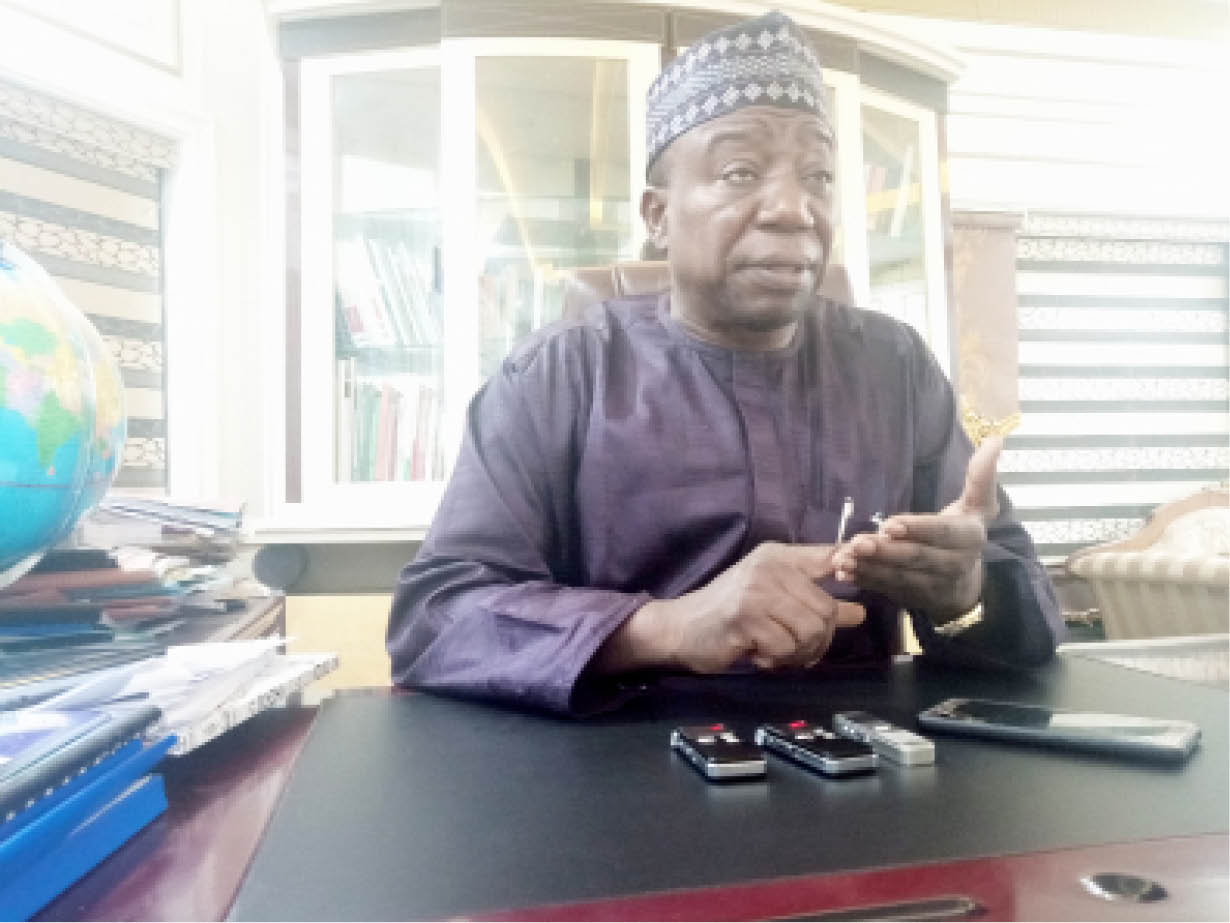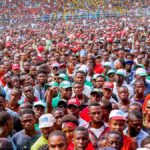Senator Adamu Aliero was a two-term governor of Kebbi State and currently represents Kebbi Central in the Senate. In this exclusive interview with Daily Trust Saturday he spoke on the failure of northern elites to bring the desired development to the region, reasons for the slow pace of work on the Abuja-Kano road, and why he is against immunity for governors, among other issues.
The slow pace of the Abuja-Kano road project has led to the death of many road users, especially between the Kaduna-Zaria axis, as well as the loss of man-hours. What do you think is delaying the work?
Two weeks ago, my committee members and I went there by road on an oversight. Wherever contractors were working we stopped and asked questions. What we saw was that Julius Berger is the only contractor working on a road of over 400 kilometers. And they didn’t have enough labour and equipment.
The Federal Government had made sufficient money available for the project. We are not happy with the level of mobilisation by the contractor. It decided not to use enough labour and equipment because it wants to save money. This is the conclusion of the committee.
We made it clear to the contractor that we want to see more labour and equipment move to site so that it can be completed on time.
We don’t have problem with funding, unlike other projects. We have the Sovereign Investment Authority that is funding about 85 per cent of the project. Also, the president has said that part of the loot recovered recently will be used for the project and other important ones.
The National Assembly initially opposed the idea of awarding the project to a single contractor. This is a job that should be separated into three. Their rate is excessively high. We agreed that they would do a good job because they are competent contractors.
It is even against the Public Procurement Act to award the road project to a contractor. The contractor’s management of traffic is very poor. There was a month, based on what the Kaduna State Government told us, when over 40 lives were lost. This compelled the government to set up a committee to manage the traffic, together with the contractor. This has significantly reduced the traffic.
We will invite them for questioning over the slow pace of work.
Our colleagues in the House of Representatives had even moved a motion to investigate why the contract was awarded to a single contractor, the mode of payment and the slow pace of work. We have not come to that in the Senate. We have done the oversight. We don’t want to make noise till we have all our facts together.
Do you support public-private-partnership as a means to fund road projects?
I believe very strongly that it is the only way we can move forward in this country. We have 522 road projects currently under construction by the Federal Government, and we have more coming. Some of these roads are very viable.
The Federal Government has no business constructing the Lagos-Ibadan road, for example. The road should go to the private sector because over 1.2 million vehicles ply it every day. Public-private-partnership is the way to go. Viable roads should be concessioned to the private sector, even if government does the rehabilitation and expansion. And what the government gets from the private sector should be used to provide road links to rural areas where the private sector cannot go because of non-viability.
We should also consider transporting heavy equipment through the railway to increase the lifespan of the roads. No matter how good a road is constructed, if the current transportation method is maintained, the lifespan will be short.
As a former minister of the Federal Capital Territory (FCT), what is your take on the N37bn approved for the renovation of the National Assembly?
I am not aware of the N37 billion being peddled by the media. I have not seen it in the budget. We have never debated it. I don’t know whether it is in the FCT budget, but I’m a member of the appropriation committee. All I can say is that for now, I consider it to be rumour. There’s no way such a thing would happen without it being debated on the floor of the Senate or House of Representatives. Everything we do here is open.
Recently, the issue of immunity for principal officers generated a lot of criticisms, even among your colleagues. Is it what Nigerians need at this moment?
I am not in support of immunity. My stand is that there shouldn’t be immunity, even for the president. Providing immunity for principal officers of the legislature doesn’t make sense to me. Immunity has been grossly abused.
Since 1999, you have been occupying elective positions. What is the magic?
Politics is not magic. It is about active participation in the affairs of the people. In politics, you will remain relevant if you are in touch with your people at the grassroots.
When will you retire from politics?
I would rather leave it for my constituents to decide. After all, the decision to join politic was not my own alone, it’s a call from my people to serve them. If my people are not tired of me, I don’t see the reason why I should quit.
The North has more people in positions of power than the South, do you think the elite have been fair to the people?
Collectively, the northern elite have failed the people.
What do you think should be done?
We all have to come to the basics and find solutions to the problems. It is not something the president or governors can do alone. It is rather the collective resolve of all of us. If that is not done, we will continue to languish in poverty, illiteracy and disease. This is the reality.
Do you think the South should produce the next president of the country?
I don’t want to comment on what somebody has said.
What advice do you have for the Chief Bisi Akande-led reconciliation committee?
Reconciliation is good if some people or groups have been aggrieved. I know Chief Bisi Akande to be an upright person. He has the capacity to bring all the warring parties on the round table to get them to agree. So, I commend his appointment as the chairman of the reconciliation committee. I pray that he would be able to bring the desired peace in All Progressives Congress (APC).
As a rice merchant and retired Customs officer, how do you see the closure of the country’s land borders?
I left the Customs job more than 20 years back, so I will talk as a farmer and politician. The closure of Nigerian border is a very good development for this country. Perhaps, it is the best policy of President Muhammadu Buhari.
No country can develop if it allows its borders to be flooded with all kinds of goods coming into the country unregulated.
I am sure you have been seeing vegetable oil in yellow jerry-cans. You will see this vegetable oil in virtually all the cities you visit. It is mostly imported from Indonesia. This is something we can stop. It is under the import prohibition list. Nobody is allowed to bring vegetable oil, but when you go, you will find most of it on display in our markets. Have people thought of its implication on our economy? We are losing employment, foreign exchange and causing a lot of poverty.

 Join Daily Trust WhatsApp Community For Quick Access To News and Happenings Around You.
Join Daily Trust WhatsApp Community For Quick Access To News and Happenings Around You.


